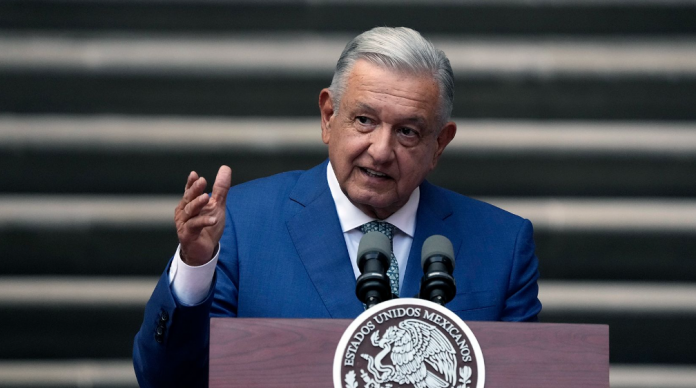Mexican President Andres Manuel Lopez Obrador admitted to being unconcerned about the possibility of committing illegal acts. This acknowledgment was made in connection with his participation in a doxing incident, which led to the unauthorized disclosure of private information about multiple individuals.
At a press briefing in Mexico City, Lopez Obrador remarked that the doxing incident was intentional and downplayed its significance. Yet, when confronted by a Univision journalist who pointed out that doxing is prohibited by Mexican laws, the president, known for his left-leaning views, argued that he merely exercised his constitutional rights to counter attacks from the media.
The situation unfolded on February 23 when Lopez Obrador criticized the New York Times during his morning press briefings in the capital. The president, known for his left-leaning stance, confronted journalist Natalie Kitroeff from the newspaper for inquiring about allegations regarding a prominent drug cartel in Latin America funneling funds into his presidential campaign.
In his critique, Lopez Obrador not only disclosed Kitroeff’s complete name but also her personal phone number. Shortly after the press conference concluded, certain Mexican news organizations aligned with Lopez Obrador’s administration began to scrutinize the New York Times journalist and her coverage of the president’s involvement with drug money.
Following the initial doxing incident, various international press freedom groups and political advocates condemned the actions of the left-leaning president. This criticism stems from Mexico’s reputation as one of the most perilous countries for journalists in recent years.
Many reporters have faced brutal violence at the hands of drug cartels after exposing corruption allegations against high-profile politicians or uncovering ties between cartel members and government figures.
Following the initial doxing incident, one of the president’s sons took to social media, claiming that his phone number had been leaked, resulting in receiving death threats. On February 25, presidential candidate and supporter of Lopez Obrador, Claudia Sheinbaum, similarly revealed that she had been doxed and received various messages on her mobile phone. Opposition party presidential candidate Xochitl Galvez also disclosed that her personal number had been exposed.













